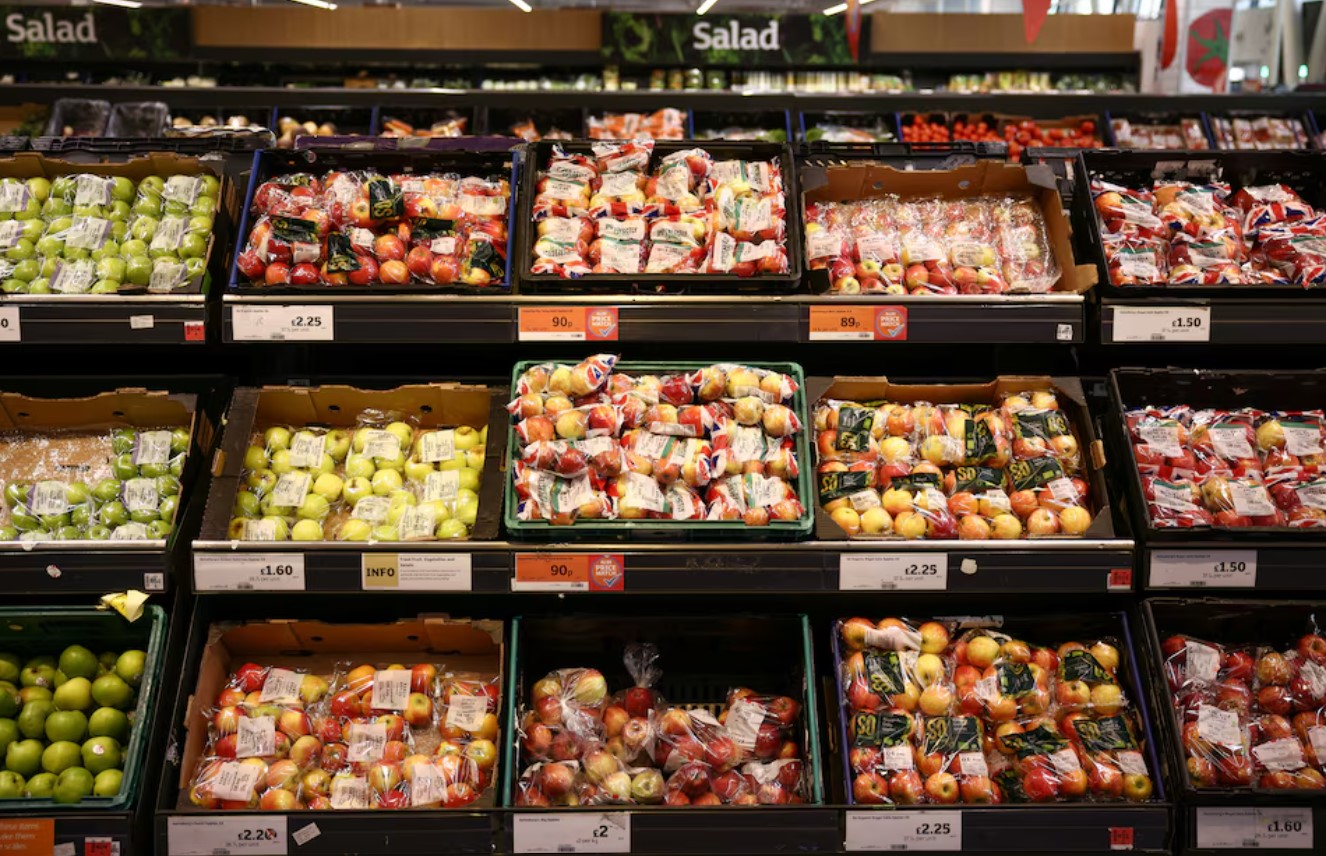British inflation in August held at 3.8 per cent, official data showed on Wednesday, the highest among major advanced economies and reinforcing expectations that the Bank of England will not cut interest rates until next year.
The rise in food prices – which the BoE sees as key for shaping public inflation expectations – was the sharpest since January last year and offset a drop in airline fares, the Office for National Statistics said.
James Smith, research director at the Resolution Foundation think tank, said headline inflation remained uncomfortably high and households would feel the impact of higher food prices.
“The chancellor should look to ease the cost of living pressures on struggling families at the budget in November,” Smith said.
Food and non-alcoholic drinks prices were 5.1 per cent higher in August than a year earlier, after a 4.9 per cent rise in July.
Last month, longer-term inflation expectations among the public rose to the highest since 2019.
‘HIGHER BILLS’
Finance minister Rachel Reeves said she was determined to “bring costs down and support people who are facing higher bills.”
Inflation for services – closely watched by the BoE – slowed to 4.7 per cent from 5.0 per cent in July.
Many firms have said they would raise prices after an increase in their social security contributions in Reeves’ first budget last October. She is expected to raise taxes again when she delivers her next budget on November 26.
Core inflation, which excludes energy, food and tobacco prices, fell to 3.6 per cent from 3.8 per cent.
Most economists polled by Reuters and the BoE had forecast that the headline measure of inflation would hold at 3.8 per cent.
British inflation is higher than in the United States, where it increased to 2.9 per cent in August and in the euro zone, where it rose to 2.1 per cent, just above the European Central Bank’s 2 per cent target.
The BoE has forecast that British inflation will reach 4 per cent in September and stay above its 2 per cent target until the spring of 2027.
The central bank is expected to hold its benchmark interest rate steady at 4 per cent on Thursday. The Monetary Policy Committee’s 5-4 split vote for a quarter-point cut last month suggested it might slow an already gradual pace of rate cuts.
While Britain’s labour market has loosened, basic wage growth of 4.8 per cent remains too high for the BoE.
However, official data last week showed Britain’s economy grew just 0.2 per cent in the three months to July.
“We still expect the looser labour market to weaken wage growth and eventually bring down UK inflation to similar rates as in the US and the euro zone,” Paul Dales, chief UK economist at Capital Economics, said.
That would allow the BoE to cut rates from 4.0 per cent now to 3.0 per cent by the end of next year, Dales said.
“But we think the upside inflation risks are just too high for the Bank of England to cut interest rates tomorrow or, more significantly, at the following meeting in November,” he added.






Click here to change your cookie preferences